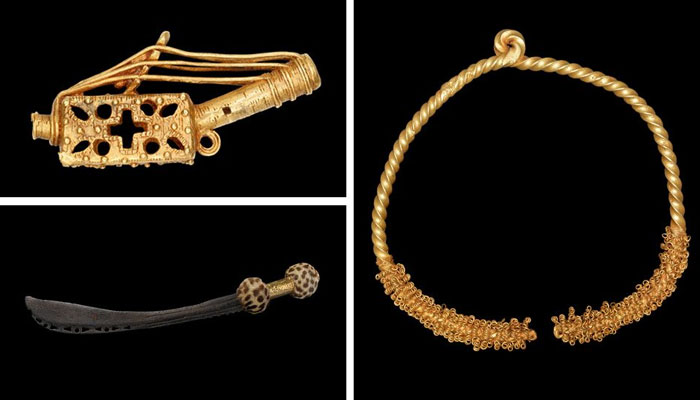British museum 'lends back' stolen crown jewels to Ghana
There are reportedly 239 pieces of Asante regalia in collection of British Museum alone
January 26, 2024

Under a long-term loan agreement, two British museums are giving gold and silver artefacts back to Ghana, 150 years after the treasures were taken from the Asante people during Britain's colonial conflicts in West Africa, NBC reported.
The Manhyia Palace Museum in Ghana, the British Museum, and the Victoria and Albert Museum (V&A) in London announced the "important cultural" partnership on Thursday.
This cooperation circumvents UK rules that forbid returning cultural assets to their countries of origin.
These laws have been used to prevent the British Museum from returning the Parthenon Marbles, also known as the Elgin Marbles, to Greece.
The lending arrangement involves about 17 artefacts in all, including 13 pieces of Asante royal regalia that the V&A bought at auction in 1874. Following their looting by British forces during the Anglo-Asante wars of 1873–74 and 1895–96, the artefacts were acquired by the museums.
The institutions released a statement stating: "These objects are of cultural, historical, and spiritual significance to the Asante people, they are also inextricably linked to the history of British colonisation in West Africa, many were taken during the Anglo-Asante wars of the 19th century from Kumasi."
Only a small portion of the Asante artefacts kept by British museums and private collectors worldwide are represented by the objects covered by the loan agreement.
There are reportedly 239 pieces of Asante regalia in the collection of the British Museum alone.
Concerning British rules that forbid the repatriation of cultural objects, Nana Oforiatta Ayim, special assistant to Ghana's minister of culture, described the agreement as a “beginning point".
However, she told the BBC that, in the end, the regalia ought to be given back to its original owners.
"I'll give you an example. How would you feel if someone broke into your home, stole things, and kept them there, then a few years later said, 'You know what? I'll lend you your objects back?'" she asked.











